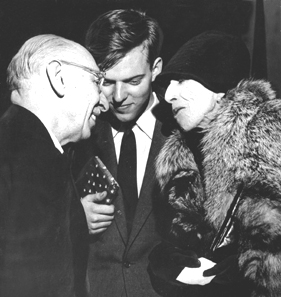 |
| CC By-NC-ND 4.0 [ANU Press] |
Will future Australians have access to efficient and sustainable transport infrastructure? ‘Road Pricing in Australia’ presents some of the latest thinking on road pricing and provision to advance crucial road reform agenda. Purchase or download from https://t.co/OAClWE2ZBp pic.twitter.com/Z5bgVxiS4H— ANU Press (@ANU_Press) July 26, 2018
Today my ANZSOG book (edited with Professor John Wanna) was published by ANU Press.
The book can be downloaded for free here: https://press.anu.edu.au/publications/series/australia-and-new-zealand-school-government-anzsog/road-pricing-and-provision.
Abstract
Road pricing is not a new concept—toll roads have existed in Australia since Governor Macquarie established one from Sydney to Parramatta in 1811—and distance-based charging schemes have been trialled and implemented with varying success overseas.
But how would full market reform of roads look in a federation like Australia? In its responses to the 2016 Australian Infrastructure Plan and the 2015 Competition Policy Review, the Australian Government explicitly supported investigating cost-reflective road pricing as a long-term reform option, and has committed to establishing a study chaired by an eminent Australian to look into the potential impacts of road pricing reform on road users. The challenges we face in this space are manifold and complex, and we still have a long road ahead of us. However, with advocacy for reform coming from interest groups as diverse as governments, private transport companies, peak industry bodies, policy think tanks and state motoring clubs, there is now more support than ever before for changing the way we provide for and fund our roads.
This book seeks to advance the road reform agenda by presenting some of the latest thinking on road pricing and provision from a variety of disciplinary approaches—researchers, economists and public sector leaders. It stresses the need for reform to ensure Australians can enjoy the benefits of efficient and sustainable transport infrastructure as our population and major metropolitan cities continue to grow. Traffic congestion is avoidable, but we must act soon. The works presented here all point to the need for change—the expertise and the technology are available, and the various reform options have been mapped out in some detail. It is time for the policy debate to shift to how, rather than if, road reform should progress.
 Donate
Donate






.jpg/1280px-Peter_Paul_Rubens_-_The_Fall_of_Phaeton_(National_Gallery_of_Art).jpg)

